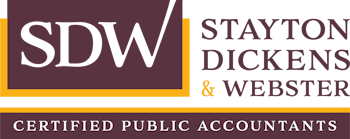Secure Act 2.0 – PROPOSED LEGISLATION
On March 29, 2022, the United States House of Representatives passed the “Securing a Strong Retirement Act of 2022” (SSRA) – better known as “SECURE Act 2.0” with a vote of 414 to 5 – almost a unanimous decision. This proposed legislation builds on prior legislation passed in The Secure Act of 2019. This new proposed legislation is expected to become law before the end of 2022 after passing the Senate and being signed into law by President Biden. The Senate just released their revisions to the House’s legislation on May 26th.
This Act and most recent Senate revision provide the following:
- Auto-Enrollment – The bill would require all new (not existing plans which are exempt from these provisions) 401(k) plans to automatically enroll employees and would require deferrals between 3% to 10% of compensation. The bill does allow for participants to opt out of the plan. However, among plans that already require automatic enrollment, more than 90% of the employees stayed enrolled. Businesses with 10 or fewer employees or companies who have only been in business for less than three years would be excluded from this mandate. Plans implemented prior to the Act becoming law, will be exempt from the auto-enrollment requirement.
- Tax Credit for Small Business (up to 50 employees) who start a retirement plan – Increases the three-year retirement plan start-up credit from 50% of costs to 100% with a $5,000 annual cap.
- Matching Student Loan Payments – Employers who provide a “match” for employees can designate the match to pay down their student loan debt. This is allowed even if the employee does not defer any funds into the retirement plan. Approximately 3.4 million people who cannot currently save for retirement due to their student loan obligations can begin saving if for nothing else to reduce their outstanding loan obligations.
- Matching Contributions – The employee can designate that the company matching contribution be a Roth contribution.
- Delays the Require Minimum Distributions – The Secure Act of 2019 provided that the age for required minimum distributions is to begin at age 72 (not the 70-1/2 original age). This new provision increases the starting age to 73 on 1/1/23, age 74 on 1/1/2030 and age 75 on 1/1/2033. The Senate version would waive required minimum distributions for individuals with less than $100,000 in their retirement savings. The penalty for not taking the required minimum distribution is also reduced to 25% from the current 50%.
- Part-Time Employees provided quicker access – Part-time employees will be allowed to participate after completing 500 hours per year for a minimum of 2 years. The original measurement period was 3 years.
- Catch-Up Provisions – The House bill increases the amount of the contributions for catch-up provisions to $10,000 (up from $6,500) for 401(k) plans for individuals aged 62, 63, and 64. Employees in SIMPLE plans would be allowed $5,000 in catch-up contributions (up from the current $3,000). The Senate revision allows the increased catch-up provision to begin at age 60 and does not limit it to the ages of 62 through 64.
- Catch-up Provisions Must be Post Tax – Any catch-up provision must go into a Roth account which requires the tax to be paid up front instead of at retirement. This will allow the government to receive tax now instead of later. However, a trade-off in favor of the taxpayer will allow any income generated from these funds to be excluded from future income tax.
- Qualified Charitable Distributions – Indexes the annual amount for withdrawals to charity from your IRA for RMD purposes (currently $100,000).
- Pension Lost and Found – A National online database will be established to help participants track down lost retirement accounts.
If you have further questions or would like to discuss how this new legislation will impact you or your business, please give us a call.
